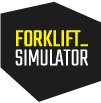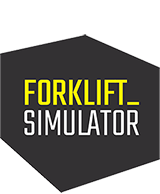
Interview with Aaron Baute, VP of business & supply chain at Ivytech.
VP of business & supply chain at Ivytech, Aaron Baute, was also present in the Seminar. He answered some of our questions in a recent interview with us.
Who are you?
Aaron Baute, Ivytech community college, VP of business & supply chain, responsible for developing the curriculum.
Ivytech is Indiana‘s community college system, encompassing more than 40 locations.[1] It is the state’s largest public postsecondary institution and the nation’s largest individual accredited statewide community college system serving 169,527 students annually on campus and online during the 2020-2021 school year.
Deploys 6 forklift-simulators at various campuses since 2019.
Why did you start VR learning?
Indian there were a lot of manufacturers requesting forklift training. A cost differential between what they want to pay and what it costs to deliver training.
How did you hear about virtual reality?
We’ve seen immersive learning. We used it to substitute tours, to give younger people an idea of what a manufacturing site looks through 360 viewing. Initially it was not really learning more awareness.
How did you decide?
We were lucky to have a case study out of our campus, in a high school nearby. They had manufacturing students. Because of the training on the simulator they had 18 students out of a class of 30 being offered jobs as forklift operator upon graduating. We were very encouraged by that relevant example. Although it was high school it translated very well to the college environment.
How did you implement a VR program?
We had industry come in and captured their feed-back. Letting them use and experience it. Have them validate. We worked with Purdue manufacturing center and they saw the value too. It evolved by demonstrating the value on the front end, then getting partners involved, industry and other education. Funding and deploying them throughout the state.
How do people react
The instructors love it. We’re skilling up students to get a job while at college. This is relatively quick.
Results
We looked at the competence of the students. When it really matters is when these students go to the employers and how much they’ve gained. What we’re hearing from industry that 80% of the training can be achieved in virtual reality. That’s awesome.
Other ideas
We’re developing scripts and programs geared towards technicians so they can gain practice to interact with people in different situations, so they become better round super star employees.
How will immersive learning in VR evolve?
There will be a lot more VR used in colleges. It allows students to experience environments that are sometimes too expensive or complex to duplicate in college.
Makes it more accessible to students and allows flexibility in teaching. Virtual reality creates awareness, provides training and lets students connect better with employers.







